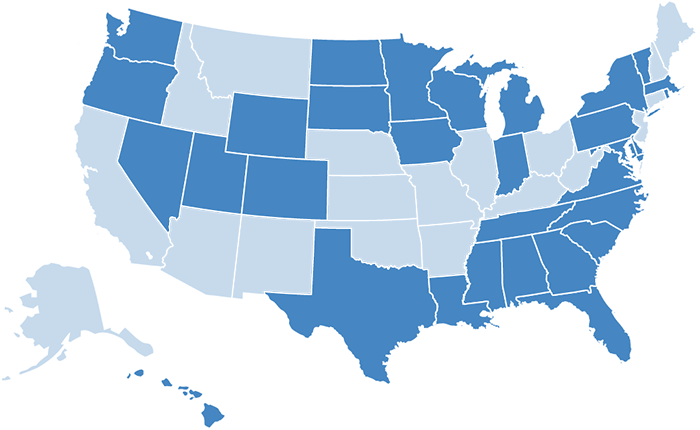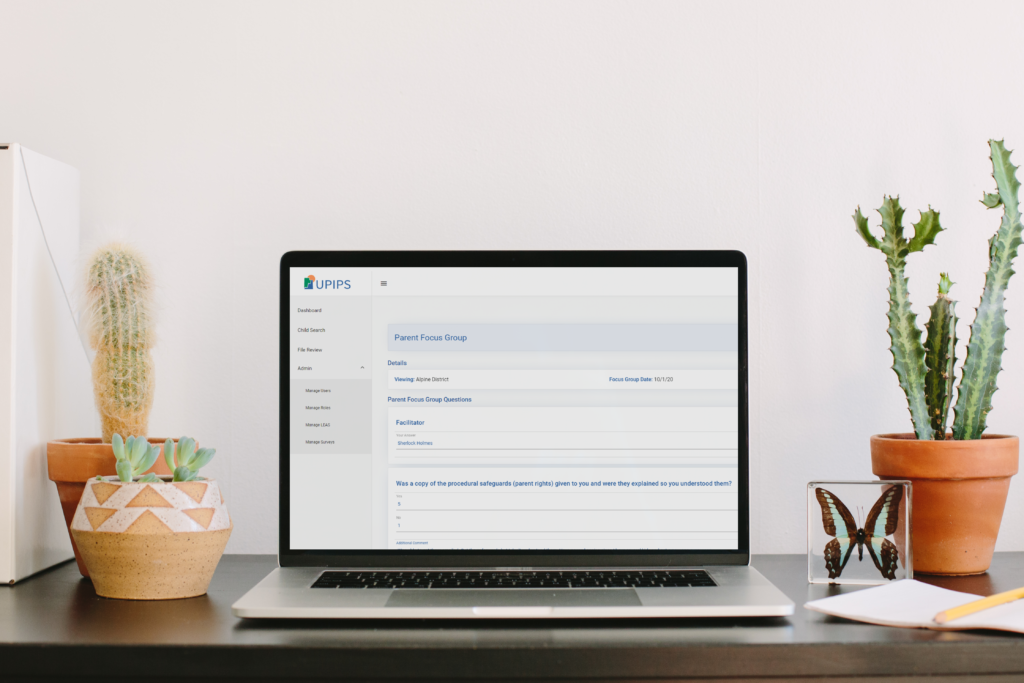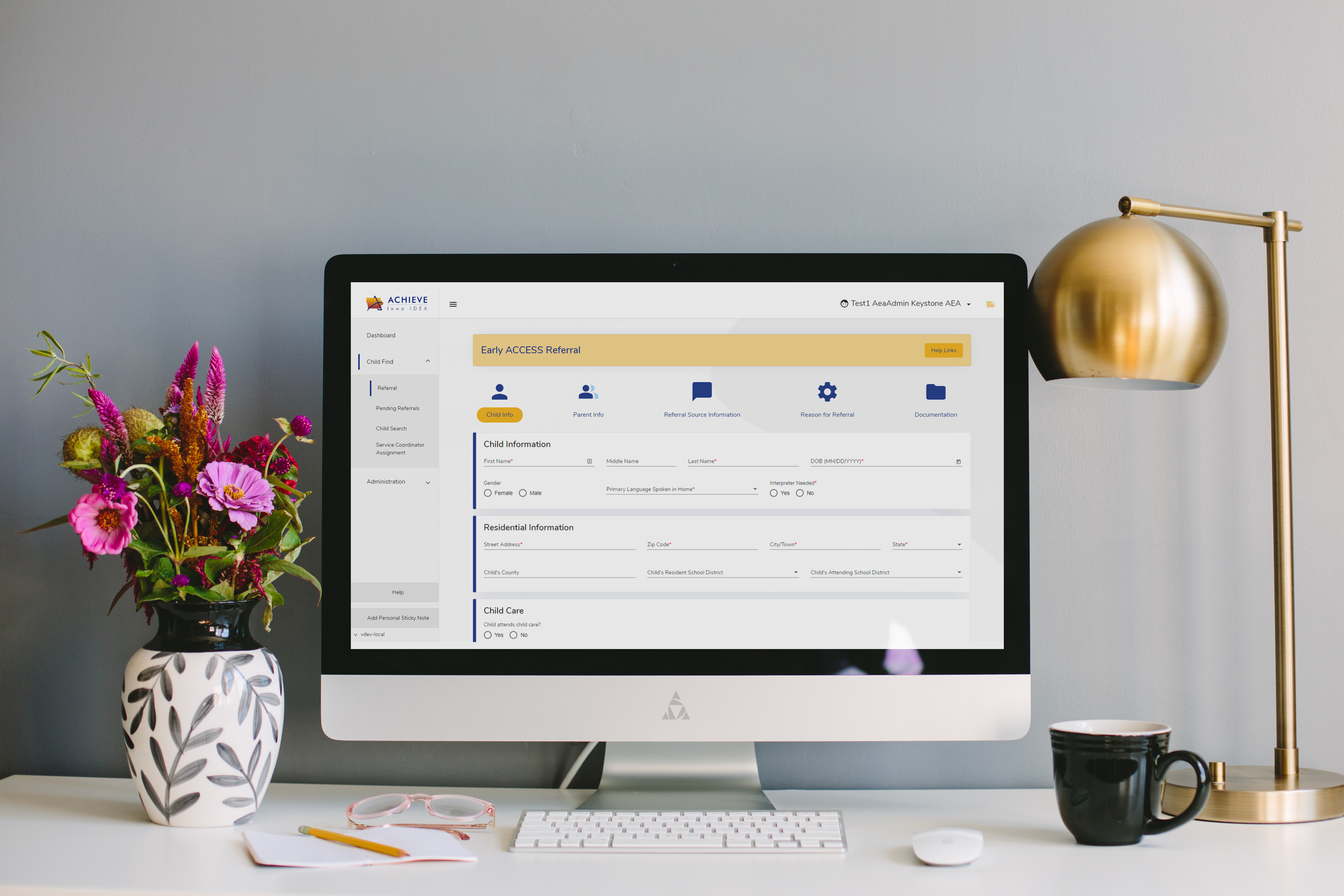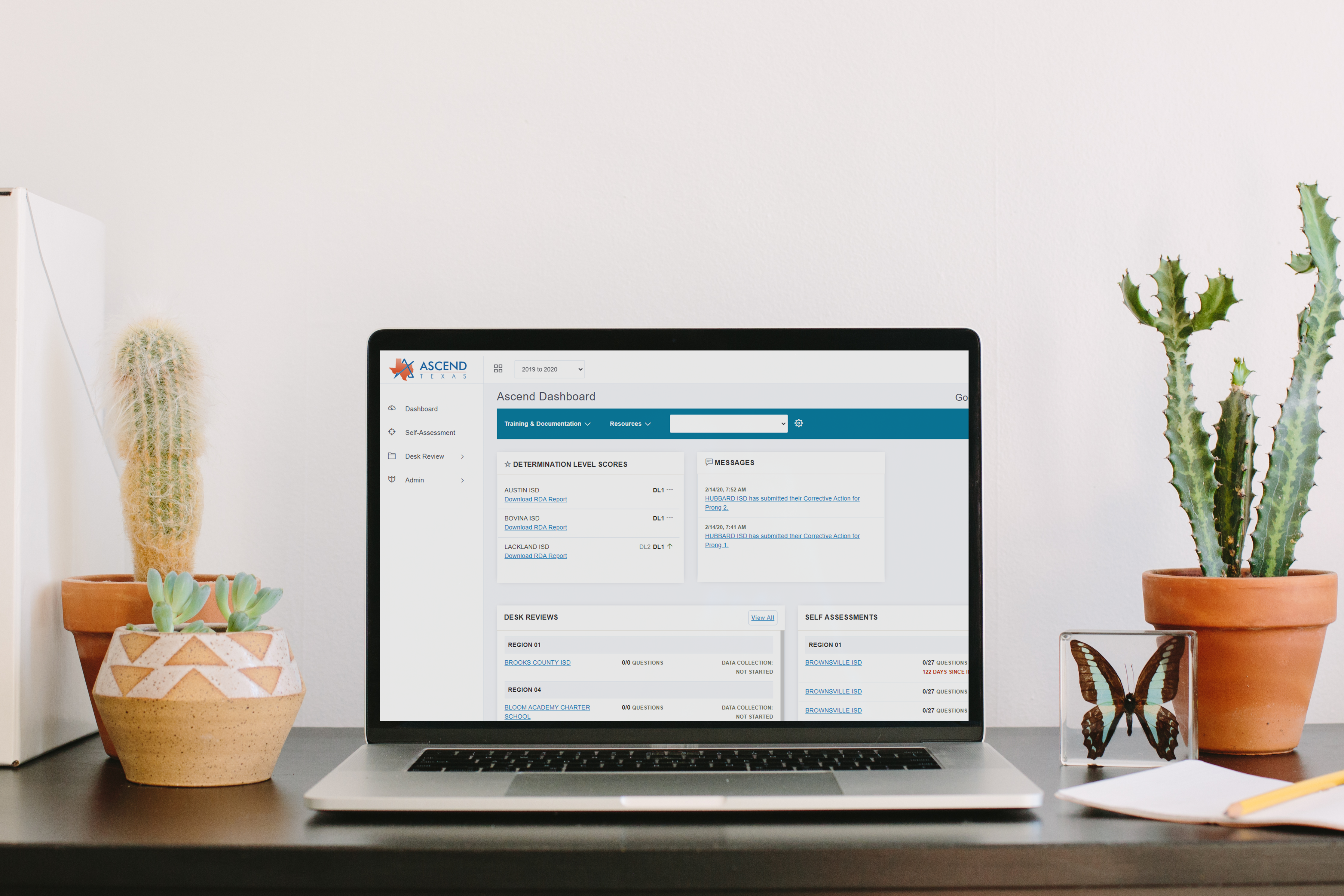Our Approach
AnLar focuses on education reform efforts at the district, state, and national level, providing distinct services to agencies to support their needs. AnLar strongly believes in the balance of focus on content expertise and experience, combined with robust and modernized data systems. AnLar’s five core service areas are technical assistance (TA), Information Technology (IT) data systems, research and evaluation, communication and design, and government process improvement.
AnLar, LLC, and SPEDSIS, LLC were formerly owned by the same parent company, AnLar Group, LLC. All staff, resources, primary office address, HR systems, and other company assets were jointly shared. In fall 2019, SPEDSIS merged into AnLar, becoming one company. All former SPEDSIS clients have transitioned to AnLar. Descriptions of past and current company performance incorporate performance and experience for SPEDSIS and AnLar as simply AnLar.
AnLar is well prepared to design and build Ascend Colorado, the IT System for IEP and ALP development, and DMS systems for IEP, Gifted, and Federal Programs. AnLar is fully dedicated to assisting states as they build data systems that help collect, process, report, and use their data as efficiently and effectively as possible. Our team works directly with over 30 states providing technical assistance, state education agency leadership, data system design and development, and a myriad of other supports for the needs that face programs that serve students and families. We pride ourselves on providing long-standing assistance to state agencies in the development and deployment of specifically-engineered custom data solutions to meet each agency’s individual needs and are excited about this opportunity to apply our experience to data systems that meet the needs of Colorado educators and administrators.
AnLar Projects Across the Country

The AnLar team focus will be on building Ascend Colorado as a customized and easy-to-use IT System around Colorado processes (rather than forcing teams into a prefabricated system). This approach is possible because of our experienced IT developers, content experts, and project management staff that have significant experience with building customized solutions for public agencies and private industry. From project management and IT design to knowledge of program requirements, from coding and testing to maintenance and training, our AnLar team will support all aspects of the Ascend Colorado project.
Our Experience
Below we present selected projects that highlight AnLar’s successful implementation of innovative and specialized data systems for educational agencies. These examples demonstrate our ability to develop software systems that facilitate individualized planning and data management that support real-time reporting and monitoring of accountability outcomes.
Nevada Department of Education
Special Education and Reporting System
(2008–Present)
The Nevada Special Education and Reporting System (NV SEARS) is the Nevada Department of Education’s (NDE) APR reporting and compliance monitoring system. In 2019, the state issued a new contract for a system redesign and AnLar successfully won the opportunity to continue our relationship with NDE for another multi-year contract. The system is designed for LEA IDEA compliance data input, generating standardized SEA-level summary reports, LEA-level summary reports, and reports to identify individual student noncompliance. NV SEARS also has the capacity to generate reports for Part B APR indicators 1, 2, 3, 4, 5, 7, 8, 9, 11, 12, 13, and 14. NV SEARS supports the ongoing collection of student-level early childhood outcome data (B7) and postsecondary outcome data (B14). It also includes a module for managing Nevada’s dispute resolution data. NV SEARS is a fully-functional system for the entry, validation, analysis, and reporting of special education data. The NV SEARS production server is housed at NDE and complies with all NDE IT requirements and conventions (e.g., security, naming, tools). Differentiated users access NV SEARS through a unique username and password managed by a local security administrator. Local LEA users and NDE staff input student-level compliance data, respond to auto-generated system-level corrections and manage files to be submitted for evidence of correction. Local users access their student-level noncompliance reports for correction at the student-item level. Systemic reports are generated based on the level of student noncompliance (Prong 1) found in reviews and have a direct relationship to the specific areas an LEA must address at the system level (Prong 2).
Utah State Board of Education Utah Program
Improvement Planning System
(2010–Present)
In 2010, AnLar was awarded a contract to build a full-featured compliance monitoring system, the Utah Program Improvement Planning System (UPIPS), for special education at the Utah State Board of Education (USBE). The contract was renewed multiple times throughout this original period due to the client’s satisfaction with the project and our team’s performance. In 2019, the state issued a new contract for an entire system overhaul, and again, AnLar successfully won the opportunity to continue our relationship.
Originally UPIPS was designed predominantly for compliance (because of OSEP memo 09-02), but over time has expanded appreciably and become one of the premier results-driven accountability (RDA) systems in the country. The collection of student-level compliance data is supported through UPIPS, but any LEA-level results data Utah wishes to collect are imported for special education RDA. Moreover, the full-featured system connects compliance and results data to the improvement planning and professional development processes for a robust general supervision system. UPIPS includes the following functionality:

- Differentiated permission and role structure supported by the USBE but maintained at LEA level;
- The ability for USBE administrative staff to create surveys for collecting data in UPIPS;
- The ability for USBE administrative staff to create and assign business logic (skips, conditional response options, etc.) to data collected via surveys created in UPIPS;
- LEAs can use the system—separate from the SEA view—for development and their own self-monitoring checks;
- Full-featured improvement plan writer with year-to-year copying and approval;
- B7 collection and reports (entrance, exit, student transfer manager, etc.);
- B11 collection and reports;
- B13 collection and reports;
- Qualitative interviews supported by quantitative analysis;
- USBE managers for permissions, data export, compliance, and indicator targets;
- Detailed monitoring reports by content area, agency, year, etc.;
- Ability to compile and release Results Driven Accountability letters and assign LEAs to monitoring tiers;
- Topical agency-level dashboards; and
- USBE- and LEA-level document storage users for securely storing reports and data from the USBE for each LEA.
District of Columbia Office of the State Superintendent of Education Corrective Action Tracking System
(2011–Present)
The District of Columbia Corrective Action Tracking System (DC CATS) is a web-based application designed to support the District of Columbia Office of the State Superintendent of Education (OSSE) IDEA compliance monitoring. The District of Columbia has long been under special conditions relative to special education compliance and needed a highly-customized system to support both Part C and B compliance monitoring and corrective actions. OSSE contracted with AnLar to design and build this highly-customized (e.g., quarterly collections and reporting of some data) system. The data requirements for DC CATS are significant due to the moving temporal pieces of a multiple-times-per-year compliance system that must comply with OSEP memo 09-02 and more stringent special conditions. Additionally, the system supports a robust out-of-state placement and private school configuration that differs from most states. DC CATS functionality includes:
- Differentiated permission and role structure supported by OSSE, but maintained at the LEA level;
- The ability for OSSE administrative staff to create surveys for collecting data in DC CATS;
- The ability for OSSE administrative staff to create and assign business logic (skips, conditional response options, etc.) to data collected via surveys created in DC CATS;
- Separate functionality (from SEA) for LEAs to use the system for professional development and their own monitoring;
- Fully-functional resource library and document manager with OSSE organizational capabilities;
- B7 collection and reports (entrance, exit, student transfer manager, etc.);
- Email and letter manager for automated electronic communication with LEAs;
- OSSE managers for permissions, data exports, compliance, and indicator targets;
- Detailed monitoring reports by content area, agency, year, etc.; and
- Topical agency-level dashboards.
Oregon Department of Education IDEA Data Manager
(2017–Present)
In 2017, AnLar was selected as the vendor to develop and maintain Oregon’s IDEA Data Manager. This application supports collection, validation, analysis, and submission of timely and accurate data to the federal government for child/student-level data. The state’s former data manager utilized outdated technology, causing increased and inefficient time spent by both Oregon state staff and district staff reporting on IDEA data. Additionally, the data manager and another special education agency database were independent of each other and had no way to share or consolidate data. Many Office of Student Services IDEA compliance functions were completed manually and time-consuming. AnLar was selected to help the Office of Student Services to develop an application that provides needed functionality along with flexible technology and the ability to interact with customized ODE data systems. AnLar has also developed all training materials, tutorials, and videos, and supports all aspects of end-user training.
Iowa Department of Education Statewide IFSP/IEP System
(June 2019–Present)
AnLar was the highest-scoring applicant for the Iowa Department of Education’s (IDE) request for proposals for a statewide IFSP/IEP system. The IDE was looking for a system that balanced the need for compliance with attention on improving outcomes for children and youth.
The IDE scored the AnLar proposal the highest based on three primary reasons:
- The innovative vision of our response and how it focuses the system on improving outcomes, not just compliance
- Project leadership with a proven record of successfully implementing data systems and software designed around team processes
- The culture of partnership and project communication that AnLar provides to its clients.

This project is on schedule for release in the summer of 2021.
Texas Education Agency Special Education Monitoring System
(June 2019–Present)
In 2019 AnLar began partnering with the Texas Education Agency (TEA) to design a system that focuses on continuous improvement and incorporates an emphasis on a data-driven, systematic approach to compliance, as well as improvement of outcomes for students with disabilities. The TEA monitoring system is based on the concept that monitoring is an ongoing process, rather than episodic procedural compliance monitoring. The focus is on active strategic planning and continuous improvement within the framework of compliance and student results.
AnLar is using a phased approach for this work to ensure success with the efforts to install a modernized Results Driven Accountability system in the state. The phases are as follows:

Phase 1: Conduct information gathering and stakeholder engagement.
Phase 2: Partner with TEA for process design and development reforms.
Phase 3: Develop a customized IT compliance and monitoring system for TEA.
Phase 4: Train and support TEA with the implementation and ensure sustainability for all processes.
The end result of this 4-phased approach will be a holistic monitoring system that includes qualitative and quantitative factors, compliance and results indicators, and meaningful feedback to LEAs. AnLar is excited to support TEA in developing and implementing one of the country’s most innovative compliance monitoring systems. The system will serve as a one-stop-shop for the state to collect, review, analyze, and report special education monitoring and dispute resolution data. The system will provide a number of existing efficiencies and time-saving features, both for LEAs and TEA, creating a location for all of the special education monitoring and dispute resolution data in one place.
